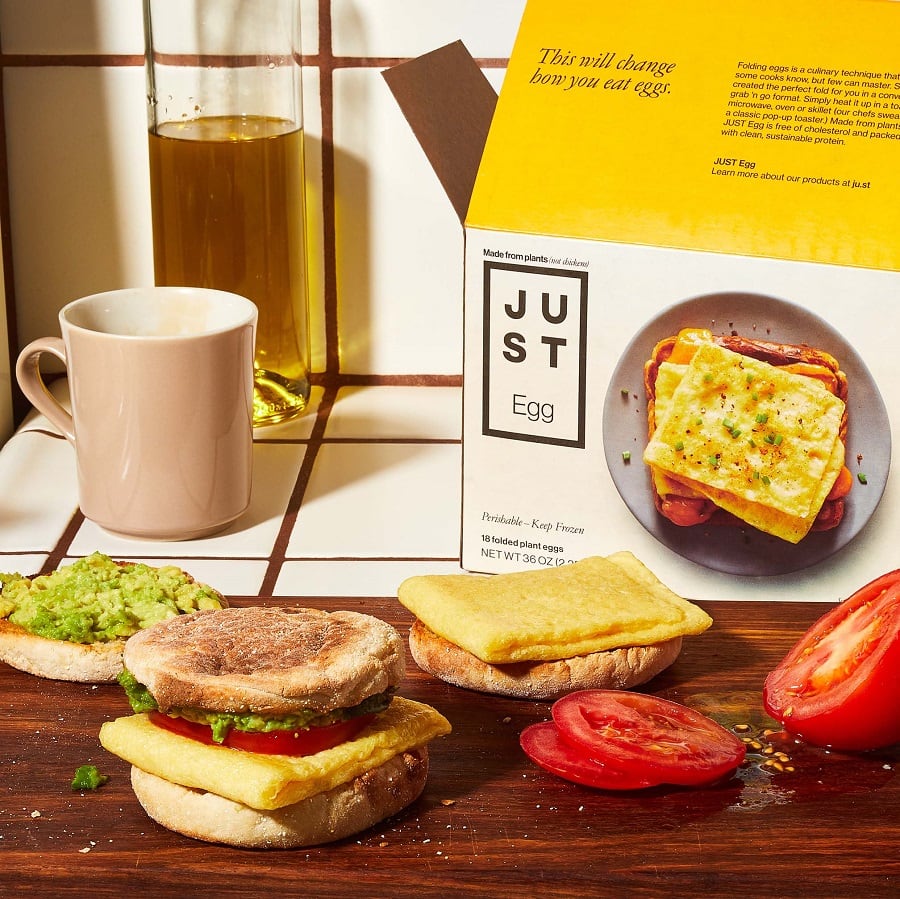"We’re focused on deepening our relationships with key retail buyers and demonstrating consumer demand for JUST Egg, so that we can increase the number of doors and the amount of shelf space we are allocated,” explained Andrew Noyes, VP head of global communications and public, Eat Just.
Noyes cites another source of the expansion are CPG companies including JUST Egg’s pourable and foldable egg products as a branded ingredient in frozen breakfast sandwiches and burritos, creating an additional 10,000 points of retail distribution. While on the food service side, JUST Egg is available in over 3,300 locations including coffee shops, resorts, amusement parks, corporate cafeterias and universities as more consumers are looking for healthy options outside of the home.
“Our foodservice field team is canvassing the country looking for new opportunities to show operators how they can bring new customers in the door by putting JUST Egg on the menu. Beyond restaurants, the travel and hospitality industries are key areas of focus, given that people are increasingly looking for plant-based options when they are away from home for business or leisure,” he explained.
Meeting a growing plant-based food demand
The rising risks associated with bacteria like salmonella and antibiotic-resistant bacterial food-borne illnesses linked to chicken eggs have contributed to the rise in plant-based alternatives. In 2021, the global vegan egg market experienced a year-on-year (YOY) expansion of 6.9%, reaching a value of $1.5 billion, according to Fact.MR, and is expected to reach sales of $3.3 billion by 2031 and a CAGR of 8.3%.
A production facility in Appleton, Minn., owned and operated by JUST, gives the company a significant advantage in manufacturing most of the protein for JUST Egg products globally. He added that the Appleton facility’s full integration of converting mung bean into protein produces “enough protein to make 29 million eggs per month or 672 eggs per minute…about 18 times the output of a conventional chicken egg facility with a fraction of the footage.”
Noyes attributes the company’s downstream production to partnerships that allow for “unlimited supply of JUST Egg to the market.
Building across its current expansion, Noyes explained JUST Egg will plant continue its growth across locations in North America and globally, particularly Canada and Korea due to manufacturing and distribution partnerships, and eventually Europe and China.
Upcoming product adjustments focus on ingredients and sustainable packaging
JUST Egg recently removed soy lecithin (a stabilizer and emulsifier common in plant-based foods) from its pourable products in retail locations with production underway to produce a similar version in food service formats. Noyes cited a minimal ingredient label and allergy concerns as primary reasons to remove soy lecithin:
“We found a way to produce a high-quality product without it, which is part of our broader effort to continue to make the product better, including reducing the number of ingredients on our label. Soy lecithin is derived from soy oil and has very little, if any, soy protein. Given that, most allergists do not recommend that people with soy allergy avoid soy lecithin. However, we've heard that the ingredient still concerns some consumers with food sensitivity, so when we were able to remove it, we did."
Additionally, JUST Egg’s 12 oz. plastic bottles are expected to transition to 16 oz paper cartons this fall.
“The new package is not only better for the environment, it’s slightly larger at 16 ounces instead of 12 ounces, which means there’s the equivalent of 10 eggs and 50 grams of protein in each carton,” Noyes elaborated.
Plant-based foods continue to shape both regional and federal food policies
JUST Egg’s expansion offers insight to how brands, policy makers and communities around the country are focused on expanding healthy options through plant-based food. New York City’s public schools feature Meatless Monday and Plant-based Friday menus for students, while its hospitals offer plant-based options as the default menu choice.
Along with 14 other cities, New York City also signed on to participate in the C-40 Good Food Cities Declaration “to increase access to plant-forward and nutritious food for city residents and halve their city’s respective food waste,” as reported previously in FoodNavigator-USA.
On the policy side, the Dietary Guidelines Committee (DGAC) continues its efforts in outlining key subgroups for nutrient-dense food, including a focus on vegetables and fiber and protein content and less on foods with added sugars, saturated fat and sodium. The Committee intends to develop the guidelines through a health equity lens, as more marginalized communities in the US are faced with limited access to nutritious food and at higher risk for diet-related illnesses.
In May, the American Frozen Food Institute called on Congress to reorganize FDA’s food division and promote the passage of Supporting All Healthy Options When Purchasing Produce (SHOPP) Act. The program is designed to include frozen produce for SNAP recipients and reduce food waste due to a longer shelf life and pre-portioned servings.




